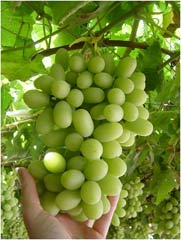Canadian Government Data Shows Pesticide Residues in Organic Produce

Source: The Packer
According to data acquired from the Canadian Food Inspection Agency, half of the organic fresh fruits and vegetables tested across Canada in the past two years contained pesticide residue.
CBC News Manitoba online reported the story, but publicity about the CFIA testing should not hurt consumer demand for organic fresh produce, said Matthew Holmes, executive director of the Ottawa-based Canada Organic Trade Association.
“The data really confirm that if the reason you are choosing organic is that you are concerned about pesticide residues, then organic is still your only bet in terms of reducing that exposure,” he said.
Trace amounts
Holmes said synthetic pesticide levels revealed in the data are trace amounts that are present in the environment and not applied by organic farmers.
“These (results) don’t suggest that organic growers have been applying these directly or intentionally.”
The CBC reported 45.8% of organic samples — 80% imported and about 20% grown in Canada — tested positive for some trace of pesticide. Only 1.8% of organic fresh fruits and vegetables sampled by the CFIA violated Canada’s maximum allowable limits for the presence of pesticides, according to the CBC report. CFIA also told CBC News that none of the test results pose a health risk for consumers.
The CBC News article said 77% of organic grape samples tested by the CFIA were positive for pesticide residues, compared with 30% of organic carrots.
The data used by CBC News for its story was acquired by the Access to Information Act and included testing of organic fruits and vegetables sampled between September 2011 and September 2013, according to CBC News.
Issue for conventional too
As expected, conventional produce showed higher residues. The data from CFIA showed that 78.4% of conventional fruit and vegetable samples contained pesticide residues, with 4.7% of non-organic fruits and vegetables violating maximum allowable limits, according to the CBC News report.
The CBC News report said the Canadian government brought in the Organic Products Regulations in 2009, requiring organic food producers to have their products certified by an accredited third-party certification body.
The U.S. Department of Agriculture (USDA) began a strengthened residue testing program in January 2013 to help increase consumer confidence in the organic industry, USDA officials said last year.
In a statement from the Canada Organic Trade Association, also published online by the U.S.-based Organic Trade Association, the group said that CBC published test data confirm that organic products have significantly lower rates of pesticide residues. The statement said few organic products that do show trace chemicals are at much lower levels than the average for conventional produce.
Looking for a reprint of this article?
From high-res PDFs to custom plaques, order your copy today!





